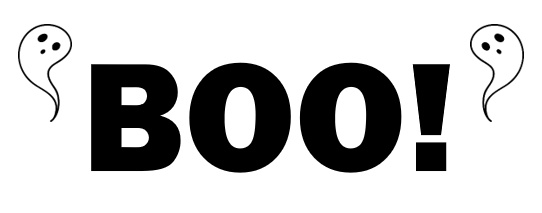-
4-minute read
-
31st October 2019
Punctuation Tips: How to Use “Scare Quotes”
This Halloween, we’re looking at the spookiest punctuation mark… the scare quote! Okay, we might be stretching there. Scare quotes are neither spooky nor supernatural. In fact, the scariest thing about them is that they’re often used incorrectly, leading to errors in writing.
But what exactly are scare quotes? And when should you use them?
What Are Scare Quotes?
Usually, quote marks indicate that you’re using someone else’s words. In fiction, they’re also used for spoken dialogue.
But neither of these are what people mean by “scare quotes.” Instead, these quote marks show we’re using a word in a non-literal sense. This includes:
- Showing that a term is non-standard, colloquial, or slang.
- Indicating that you are using a term ironically.
- Expressing disapproval over how a word has been used.
For example, if we disagreed with someone’s advice, we might write:
Many “experts” offer bad advice on punctuation.
Here, we’ve put the word “experts” in quote marks to show that we think the people offering bad advice are not experts at all. This is a bit like adding “so-called” in front of a word to indicate disapproval or doubt.
You can also use scare quotes to introduce borrowed terminology:
This is reminiscent of what Max Weber called “elective affinities.”
For instance, we’re not quoting a specific line from one of Weber’s published works above. Nor are we expressing disapproval of how Weber used “elective affinities.” Rather, we’ve put quote marks around the term to show we’ve taken it from somewhere else rather than inventing it.
Find this useful?
Subscribe to our newsletter and get writing tips from our editors straight to your inbox.
Subscribe to Beyond the Margins and get your monthly fix of editorial strategy, workflow tips, and real-world examples from content leaders.
This is an acceptable usage, but you should only use quote marks around a term like this when you first introduce it. After that, your reader will know where it came from, so further “scare quotes” are redundant.
Style Guides and Scare Quoting
As with most aspects of writing, different style guides have different rules about scare quotes. As such, if you’re working to a style guide, make sure to look for advice about this kind of punctuation.
For now, let’s look at how three major style guides approach this issue:
- APA – The APA recommends using scare quotes “To introduce a word or phrase used as an ironic comment, as slang, or as an invented or coined expression. Use quotation marks the first time the word or phrase is used; thereafter, do not use quotation marks.”
- Chicago – The CMoS says quote marks can be “used to alert readers that a term is used in a nonstandard, ironic, or other special sense,” but it also warns that “scare quotes lose their force and irritate readers if overused.”
- MLA – The MLA says scare quotes “distance an author from a term” to show irony, skepticism, or derision. However, they also “recommend against using them” and suggest “using them sparingly and with explanation” if you do decide to use them anywhere in your writing.
In general, then, scare quotes are accepted by these style guides. However, they all also warn against overusing quote marks of this type.
Top Tips for “Scare Quoting”
As you may have gathered from the information above, the meaning of a “scare quote” can depend on the context. Some authors only use them to express disapproval. But if you’re simply borrowing someone else’s terminology, the quotation marks don’t have to suggest irony.

In addition, overuse can make a document look messy. Thus, you should always use scare quotes sparingly and, even then, only if you’re sure your reader will understand why you are using them.
If you do scare quote, though, make sure to follow these handy tips:
- NEVER use scare quotes for emphasis.
- Make sure your reader can tell you’re not quoting something directly.
- If you introduce a borrowed term, only use quote marks the first time.
- Do not use both “so-called” and scare quotes for a single word.
And if you need help with the punctuation – scary or otherwise – in a document you’ve written, just let us know.




